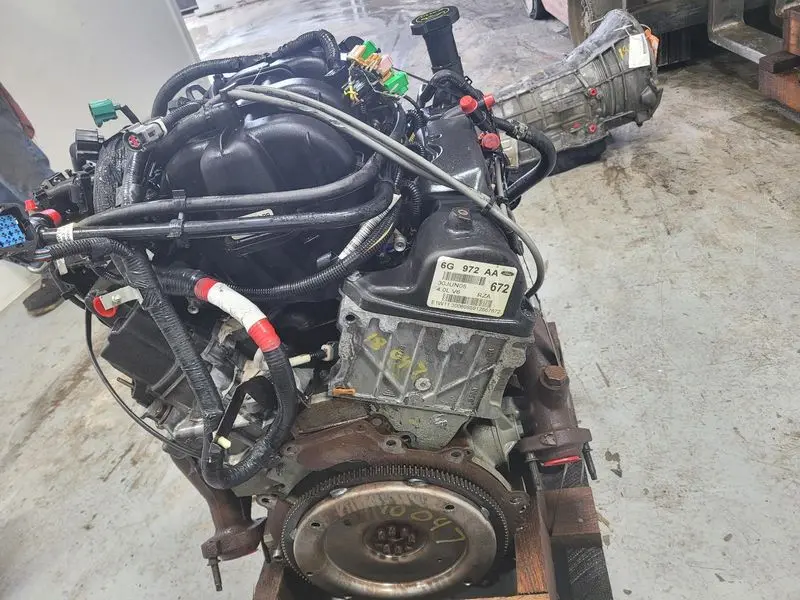What Makes a Vehicle Engine Run Smoothly: Leading Tips for Optimum Treatment
The smooth procedure of a vehicle engine is basic to both efficiency and longevity, making ideal treatment a vital duty for car proprietors. What details steps should you focus on to guarantee your engine continues to be in peak condition?
Regular Oil Changes
One of one of the most crucial elements of auto upkeep is ensuring your engine gets normal oil changes. Engine oil lubes internal elements, lowers friction, and helps preserve optimum operating temperatures. Gradually, oil weakens as a result of warmth, impurities, and the natural results of combustion, bring about reduced efficiency and potential engine damages.
Many makers advise changing the oil every 5,000 to 7,500 miles, yet this period can differ based upon driving problems and oil kind. Artificial oils may allow for longer periods between adjustments. Routine oil changes not just enhance engine efficiency however also boost gas effectiveness, as clean oil promotes smoother procedure.
Disregarding oil modifications can result in sludge build-up, which hinders flow and can lead to serious engine issues. It is crucial to check oil degrees frequently and monitor for any type of uncommon modifications in shade or consistency, which can indicate contamination or deterioration.

Preserving Coolant Degrees
Preserving appropriate coolant degrees is essential for stopping engine getting too hot and ensuring ideal performance. The coolant, normally a combination of water and antifreeze, circulates with the engine, soaking up warmth and avoiding thermal tension. Insufficient coolant can lead to enhanced engine temperatures, which may create severe damages and even complete engine failure.
To maintain optimal coolant degrees, routinely inspect the coolant tank, normally found in the engine bay. Guarantee the coolant is filled to the recommended mark, as shown in your lorry's proprietor handbook. It is a good idea to inspect the degrees at least when a month or soon journeys, particularly during severe weather condition conditions.
If you notice that the coolant degree is constantly low, there may be a leak in the air conditioning system, which need to be resolved without delay to stop further difficulties. 2.2 ford ranger engine. In addition, flushing the coolant system every a couple of years can aid eliminate any collected debris and make sure efficient warm exchange
Monitoring Air Filters
It is advised to inspect the air filter every 12,000 to 15,000 miles, or much more frequently if driving in dusty or damaging conditions. A straightforward aesthetic assessment can typically expose whether the filter is dirty or harmed. It must be replaced without delay. if the filter appears discolored or has noticeable dirt build-up.
Using a top quality air filter designed for your certain vehicle version can even more boost engine performance. In addition, some cars might take advantage of multiple-use filters that can be cleaned and re-installed, providing a environmentally friendly and cost-effective choice.
Inspecting Glow Plugs
Glow plugs are necessary parts of a lorry's ignition system, straight impacting engine efficiency and performance. They create the spark that ignites the air-fuel mix in the combustion chamber, helping with the engine's power generation. Routine evaluation of stimulate plugs is important for preserving optimum engine feature and stopping prospective problems.
During an evaluation, original site search for signs of wear or damages, such as splits, carbon accumulation, or extreme gap widening. A healthy and balanced trigger plug commonly displays a light brown or tan color. Dark residue or oil down payments can suggest improper burning, while a blistered or white appearance may suggest overheating. Both problems need instant interest to avoid additional engine damage.
It's suggested to evaluate ignition system every 30,000 miles, or as suggested in your automobile's owner manual. In addition, think about replacing them according to the producer's standards, as worn or old stimulate plugs can cause misfires, decreased gas effectiveness, and enhanced emissions.
Surveillance Tire Pressure
Under-inflated tires can lead to decreased fuel performance, increased tire wear, and compromised handling. Routine tracking of tire pressure is crucial for optimum car procedure.
Tire stress should be checked at the very least when a month and eventually journeys. Use a reliable tire stress gauge to gauge the stress when the tires are chilly, preferably before the lorry has been driven for at the very least 3 hours. Describe the go to my blog lorry's owner manual or the placard located on the vehicle driver's side door jamb for the maker's advised pressure levels.
It is essential to keep in mind that tire stress can change with adjustments in temperature; a drop of 10 ° F can cause a 1-2 psi decrease in pressure. Additionally, aesthetically check tires for any indicators of wear or damages throughout your monitoring regimen. Keeping correct tire stress not just enhances automobile safety however additionally enhances gas performance and extends tire life, eventually adding to a smoother engine efficiency.
Conclusion
In conclusion, preserving a vehicle engine's smooth procedure requires attentive attention to numerous crucial factors. Eventually, a positive technique to engine treatment is crucial for guaranteeing reliability and functionality over time.
One of the most critical facets of vehicle maintenance is ensuring your engine receives regular oil modifications. Engine oil lubricates internal elements, lowers friction, and assists keep ideal operating temperatures. Normal oil changes not just boost engine efficiency however also enhance fuel performance, as tidy oil promotes smoother procedure.
Not enough coolant can lead to increased engine temperatures, which may cause extreme damage or also complete engine failing.

Comments on “How to Maintain and Optimize the 2.2 Ford Ranger Engine for Long-Lasting Performance”